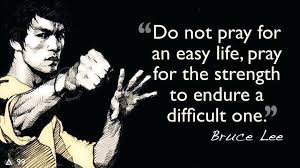Mindfulness and Stress 2
So as has been described in the previous as well as other posts on this blog, it is the prolonged vulnerability and complete dependency upon our primary caregivers as neonates and children that serves as the incubator for much of our future anxieties, fears, conflicts, and general life pain. As a child, anything that threatens our attachment with our caregivers ranging from simple acts of parental non-responsiveness (non-attunement), frowns, yelling, corporal punishment or abuse, can cause profound anxiety related to fears of rejection, abandonment and even death. Through a variety of learning and conditioning processes, a variety of social and environmental cues can come to elicit these primordial fears.
And so, in the course of day to day life a huge number of things can occur to rekindle these primordial fears and initiate a perception of threat and a variety of powerful emotions and the underlying physiological events that we term the stress response. So lets take a couple of examples. When I do seminars/workshops on this topic, invariably someone in the audience cites the feeling of being “overwhelmed” by their workload whether at home or at work. What I point out, is that they are not in fact overwhelmed, but have a fear of becoming overwhelmed. That is more than a trifling semantic difference. So, what is the fear of being overwhelmed? It is the fear that one will be unable to keep up with demands and expectations on their time, that they will be unable to get everything done, and then that they can fail, lose their job, and perhaps lose their means of livelihood and support. Furthermore, the ultimate fear is that they could risk the social disapproval of those around them, risk censure, abandonment and yes, at a deep core level…..death! Often, as a result of these deep fears, one may wind up procrastinating, which is another way of saying avoiding their work, compounding their fear with a sense of guilt and shame.
OK, lets take another one. One of the main sources of stress regards finances. So let’s say, one is working on their taxes, or balancing their checkbook. They are contemplating the enormity of their financial obligations and responsibilities relative to their income. They are wondering how they are going to make it, pay their bills, put the kids through college, deal with medical emergencies etc. A number of feelings may arise when contemplating one’s financial difficulties: Fear, shame, embarrassment, helplessness, hopelessness, despair and so on. if one were to mindfully penetrate these fears, they might uncover that behind all this is the fear of interpersonal loss…i.e…that one’s worth (this is especially true for males) is inextricably tied to their capacity to earn and provide. And thus if they cannot, then they will be rejected and abandoned.
So, rather than just use the term “stress” or even ‘anxiety”, I encourage people to mindfully embrace the various feelings that arise as one contemplates these or other scenarios. Most importantly, label as specifically as possible, the various feeling states that emerge and note the bodily sensations and physical points of emanation of these bodily signals. For those who follow this blog, you will recognize this as the technique which I’ve termed emotional surfing. But any mechanism of allowing emotional mindful exposure will adequately suffice.
Furthermore, one can implement the Implosion technique to even more radically embrace the embedded fears that drive the stress response in conjunction with various real or imagined scenarios. Keep in mind that it is typically the anticipation of negative consequences and not the occurrences themselves that propel stress responding. As Mark Twain once wrote, “The worst things in life never happened”.
In summary, when you are aware of stress responses in your body, attempt to ascertain why your brain is registering a sense of threat. Keep in mind that often, it our ancient fears that were laid down during the most vulnerable stages of our development that set the stage for our current anxieties.Label the feelings as specifically as possible.
Directly embrace the arising feelings and fears and pay close attention to the mental drama your mind is producing around those feelings. Maximally expose your fears by imagining the most horrific outcomes you can possibly imagine.
Stress will always be an inevitable part of life. However, by learning to mindfully embrace our emotions as they arise, we can learn to maintain health, balance and poise in the face of life’s challenges and curtail unnecessary levels of suffering. Thus the best way to manage stress, is to mindfully embrace the “dark emotions”. Just be wherever you are. Even when it hurts!
All are encouraged to provide comments, personal experiences, or questions.






